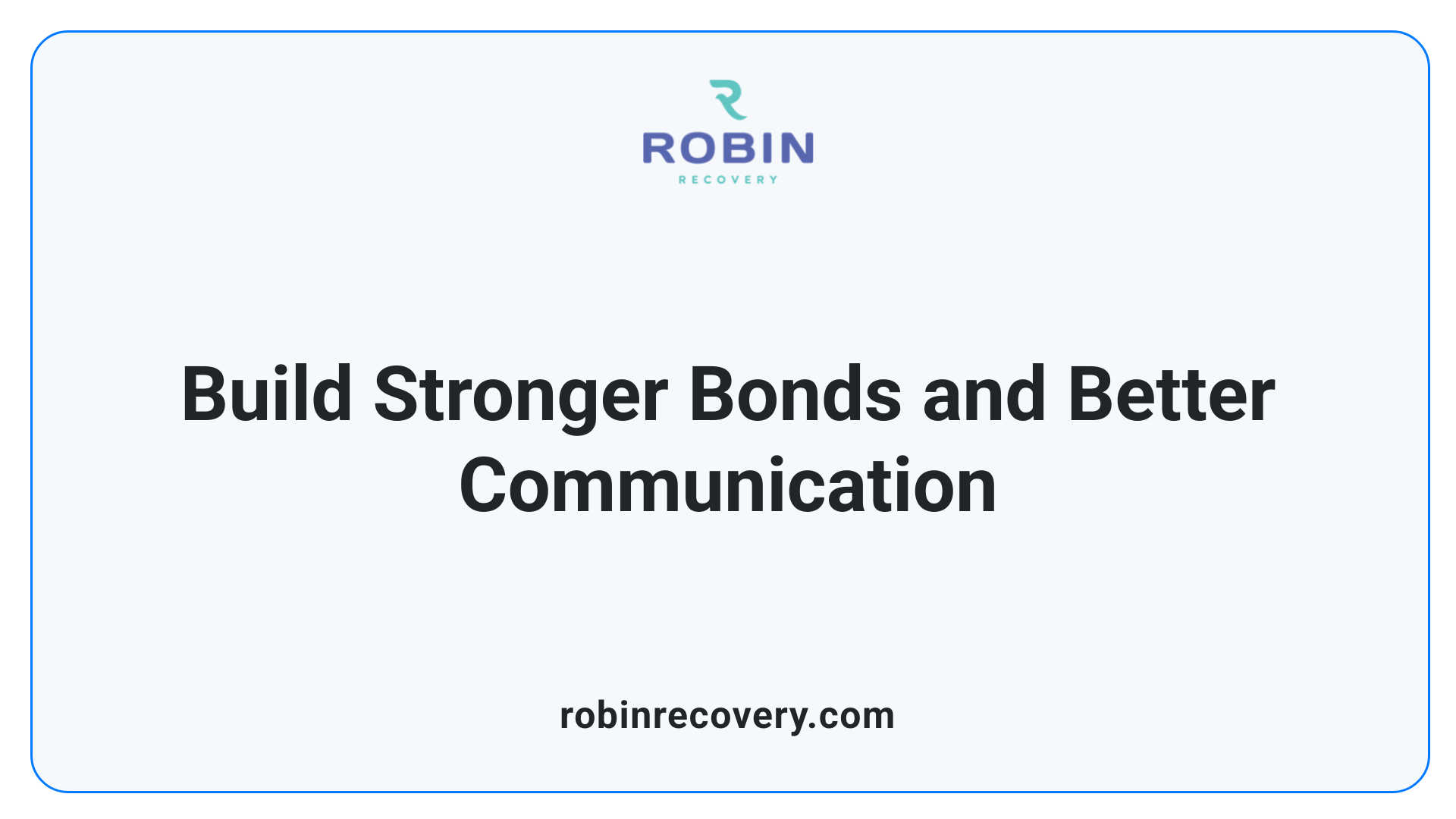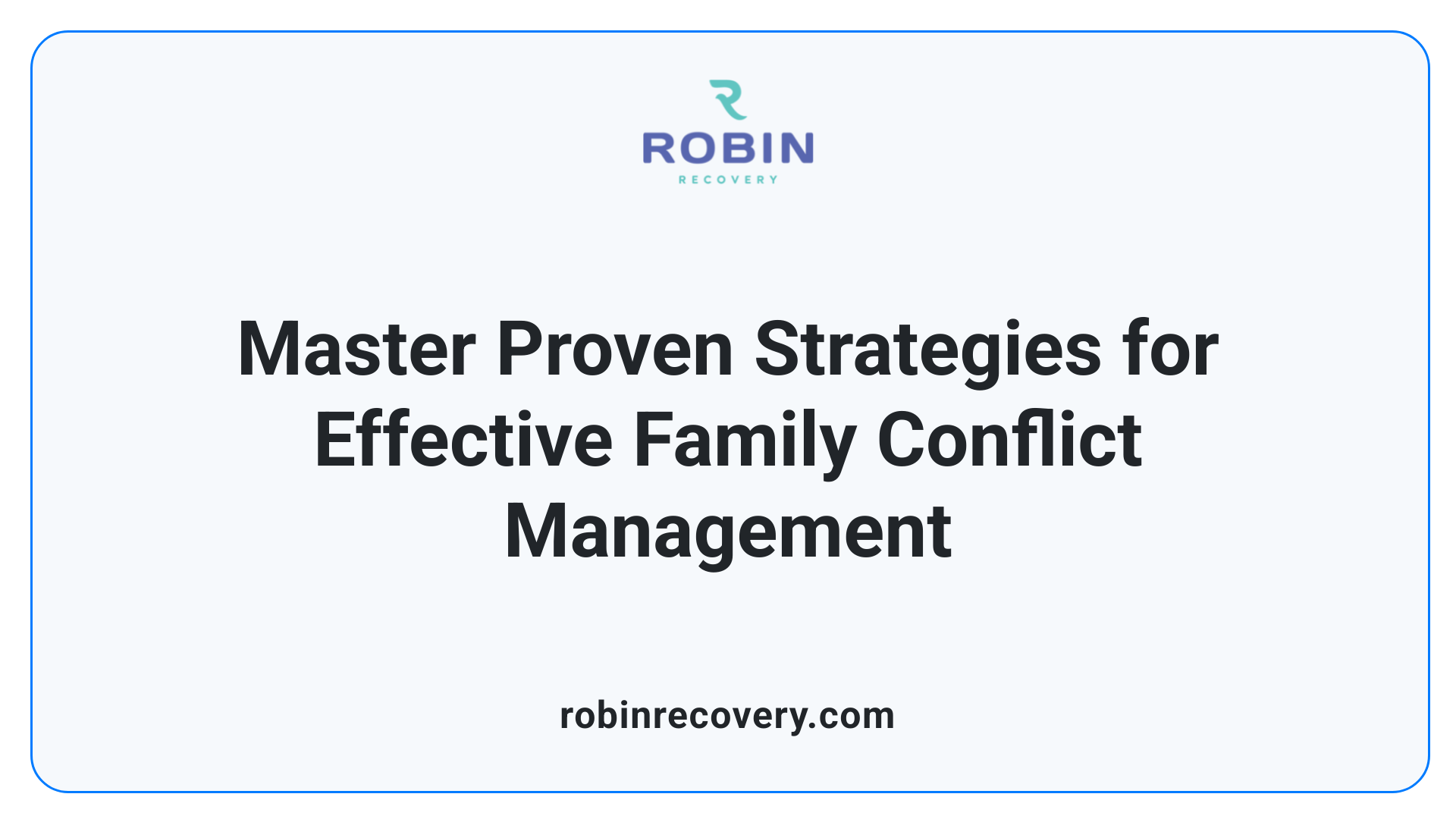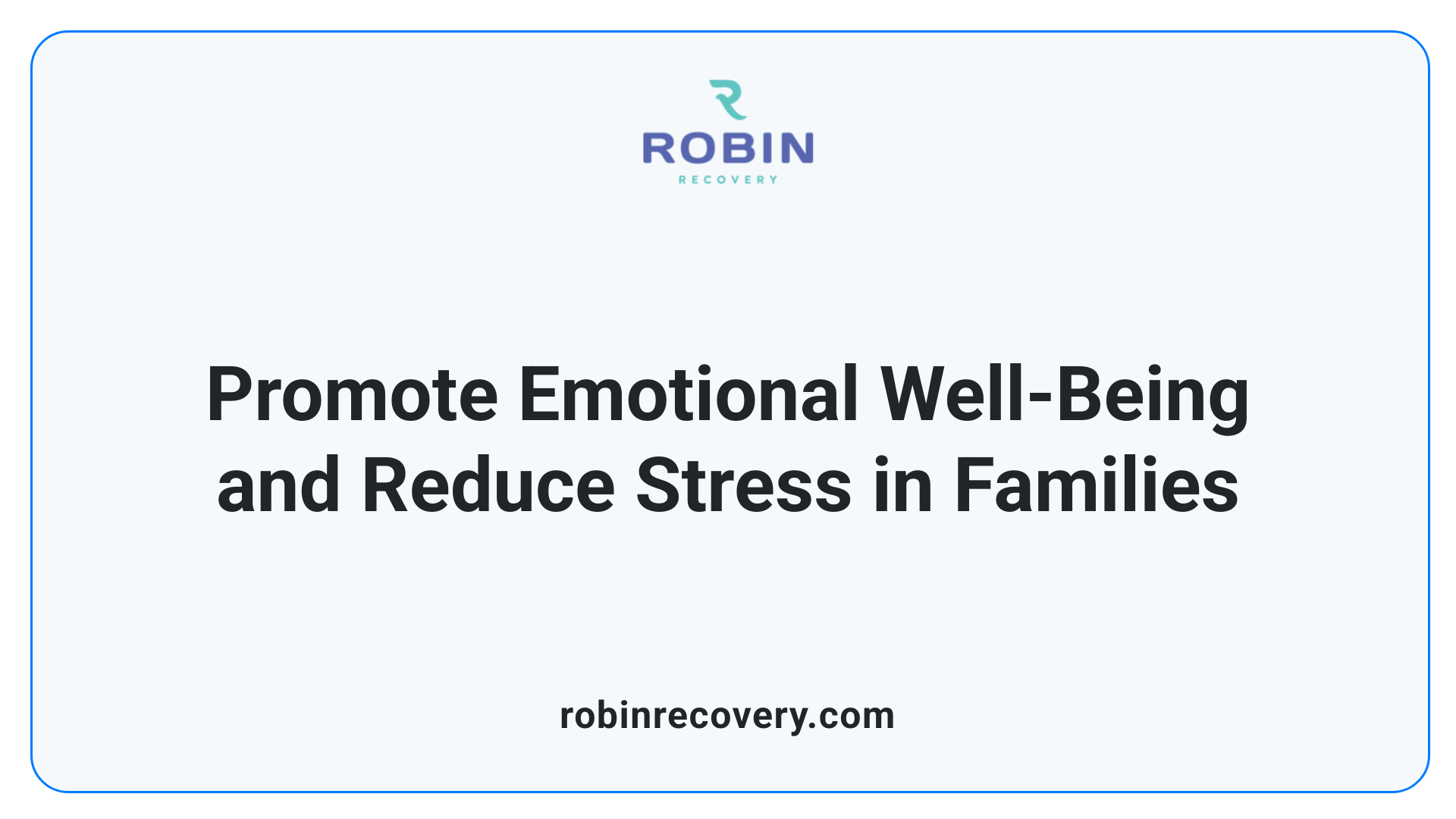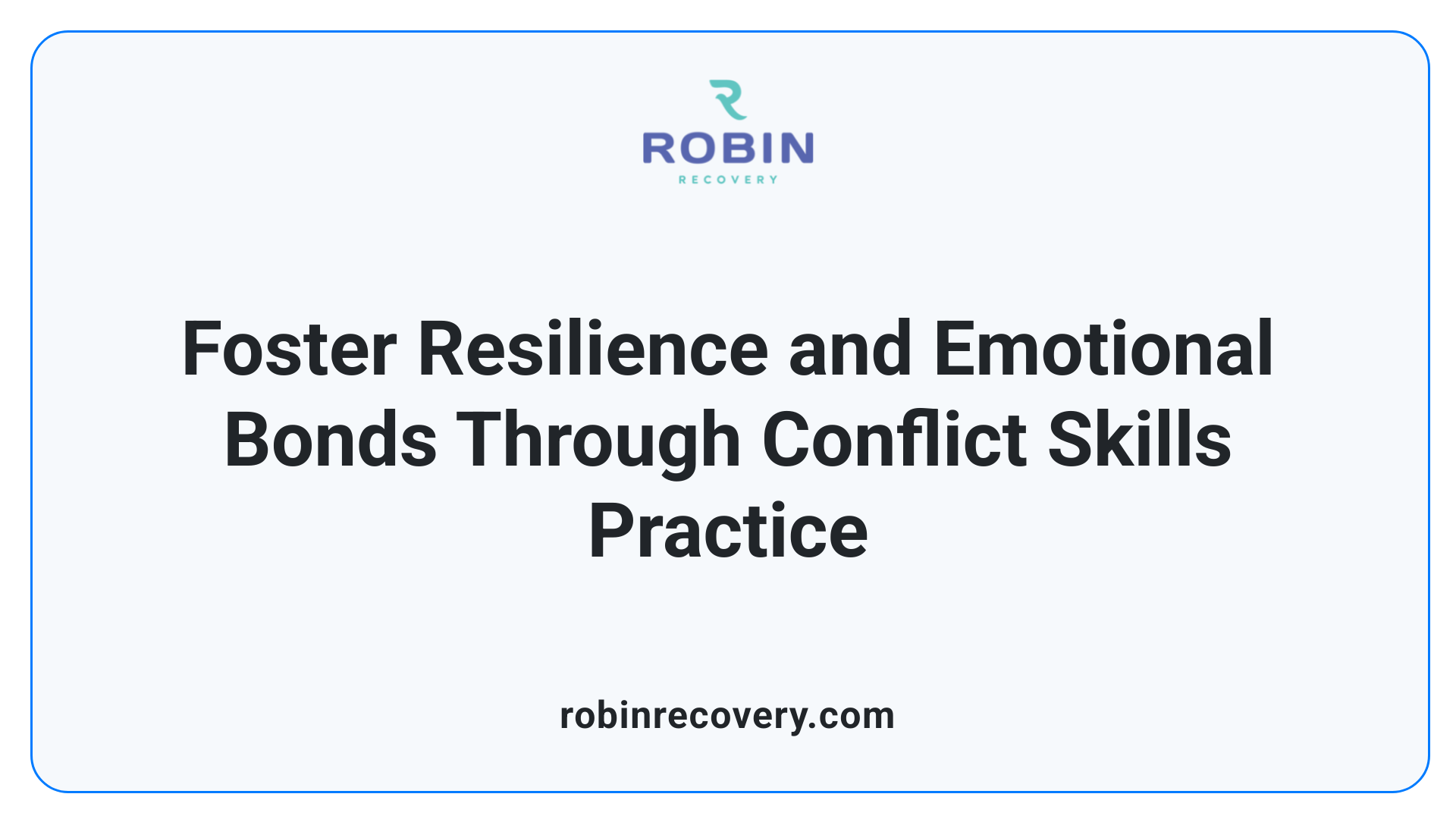The Benefits of Learning Conflict Resolution Skills in Family Therapy

Understanding the Role of Family Therapy in Conflict Management
Family therapy serves as a vital platform for resolving conflicts, enhancing communication, and fostering empathy among members. It provides a safe, non-judgmental environment where families can work collaboratively to address their unique challenges. By employing various therapeutic approaches such as structural, systemic, and narrative therapy, clinicians tailor interventions to meet specific family needs, promoting lasting improvements in familial relationships and emotional health.
Core Benefits of Conflict Resolution Skills in Family Therapy

What are the benefits of learning conflict resolution skills through family therapy?
Learning conflict resolution skills in family therapy offers numerous advantages that significantly enhance family dynamics. One of the primary benefits is improved communication, enabling family members to express themselves clearly and listen actively to others. This fosters an environment where emotions can be expressed healthily, reducing misunderstandings and frustration.
Another vital benefit involves modifying harmful behavioral patterns. Family therapy encourages members to identify recurrent conflict themes and develop healthier ways to interact, promoting mutual respect and understanding of different perspectives.
Effective conflict resolution techniques, such as using 'I' statements, help de-escalate tensions during disagreements. These methods encourage personal accountability and reduce blame, creating a safer space for open dialogue.
Conflict resolution skills also promote collaboration among family members, facilitating the setting of healthy boundaries and repair of relationship ruptures when conflicts arise.
Ultimately, acquiring these skills enhances emotional well-being, supports mental health, and fosters a more harmonious and supportive family environment. The result is a resilient family unit capable of addressing challenges constructively.
Why are conflict resolution skills important for strengthening family bonds?
Strong family bonds depend heavily on the ability to handle conflicts effectively. Conflict resolution skills are crucial because they foster trust, understanding, and respect among family members.
These skills enable families to approach disagreements with a solutions-oriented mindset, leveraging active listening, empathy, and clarification of intentions. This approach helps prevent conflicts from escalating into hostility or resentment.
By openly addressing issues and taking steps to repair ruptures—such as acknowledging mistakes and expressing remorse—families rebuild connection and trust over time. These repair strategies are vital for maintaining emotional intimacy and resilience.
Engaging in conflict resolution transforms potential family crises into opportunities for growth. It nurtures a supportive environment where challenges are approached collaboratively, strengthening the overall family bond.
Developing and practicing conflict resolution skills turn inevitable disagreements into moments of connection, fostering a healthier, more resilient family dynamic.
Techniques and Strategies for Effective Conflict Management in Families

What techniques and strategies are recommended for effective conflict management in family settings?
Effective conflict management within families requires a combination of communication skills and emotional regulation practices. A foundational approach involves active listening, where family members genuinely focus on understanding each other's points of view without interrupting or judging. Using 'I' statements is another crucial technique, enabling individuals to express their feelings and concerns without assigning blame, which helps reduce defensiveness.
Setting clear boundaries is essential to define acceptable behaviors and personal space, fostering respect and predictability. Collaborative problem-solving encourages family members to work together to generate solutions rather than competing against each other. This process often includes identifying 'choice points'—moments where responses can significantly influence the ongoing conflict—and choosing responses that promote understanding and resolution.
When conflicts escalate or persist, seeking external help through mediation or family therapy becomes beneficial. Such professional support can uncover underlying issues, facilitate honest communication, and promote healing.
Creating an environment rooted in mutual respect and emotional safety encourages open dialogue. This environment helps prevent conflicts from spiraling into hostility and promotes stronger, more resilient relationships.
How does family therapy teach conflict resolution techniques?
Family therapy provides a structured setting to learn and practice conflict resolution skills. Therapists focus on enhancing communication abilities, especially through techniques like 'I' statements and active listening, which help family members express their emotions constructively.
During sessions, therapists explore relationship patterns and underlying issues that contribute to conflicts. This exploration helps family members understand each other's perspectives and emotional triggers.
Therapeutic interventions include guiding families through steps such as acknowledging each other's feelings, expressing remorse when hurt, and working toward reparative actions. These steps facilitate the repair of trust and trust-building among members.
Family therapy also emphasizes de-escalation techniques, such as separating the person from the problem and maintaining a calm tone. Collaborative brainstorming encourages families to generate possible solutions and evaluate the best options collectively.
Overall, family therapy equips members with practical conflict management strategies, helping them resolve disputes more effectively, rebuild relationships, and develop healthier interaction habits.
The Impact of Conflict Resolution Skills on Family Well-Being

What is the impact of conflict resolution skills on emotional well-being and mental health within families?
Conflict resolution skills play a pivotal role in shaping the emotional and mental health of family members. When families effectively manage conflicts, they experience less stress and resentment, leading to a more harmonious home environment. Skills such as active listening, expressing oneself clearly and respectfully, and understanding others’ perspectives foster open communication. This not only helps in resolving disagreements smoothly but also strengthens emotional bonds.
Through the use of therapy techniques like role-playing, guided discussions, and mindfulness practices, family members learn to regulate their emotions and respond thoughtfully during conflicts. This reduces the likelihood of conflicts escalating into larger issues and minimizes feelings of anger, frustration, or helplessness.
The benefits extend beyond immediate conflict management. Consistent use of conflict resolution strategies boosts emotional resilience, enabling individuals to bounce back from setbacks and stressors more effectively. As a result, family members are less prone to develop chronic mental health issues such as anxiety and depression. Incorporating these skills into daily interactions creates a supportive environment where members feel heard, valued, and safe.
Overall, the development of conflict resolution skills profoundly impacts emotional well-being by promoting emotional stability, reducing mental health risks, and fostering a resilient family dynamic that can navigate life's challenges with confidence.
Family Counseling Strategies for Addressing Common Family Conflicts
How can family therapy help families resolve conflicts more effectively?
Family therapy is a powerful tool for resolving family conflicts more successfully by creating a safe space where members can openly communicate and share their feelings. Therapists help uncover underlying issues that may be fueling misunderstandings and disagreements. They guide families through improved communication techniques such as active listening and 'I' statements, which help reduce defensiveness and promote mutual respect.
The process typically involves an initial assessment to understand the family dynamics, setting specific goals, and designing tailored interventions. During therapy sessions, families work on practical strategies to manage challenges like parenting difficulties, sibling rivalry, or marital conflicts. These sessions also serve as educational opportunities, helping family members understand mental health conditions such as depression or anxiety, which may impact family interactions.
With professional guidance, families learn conflict resolution skills, improve trust, and develop healthier ways to relate to one another. Ongoing evaluation ensures that the strategies are effective and adapted to evolving family needs, leading to more harmonious and resilient family relationships.
Building a Resilient Family Culture Through Conflict Skills Education

Why is it beneficial to practice conflict resolution skills regularly within families?
Practicing conflict resolution skills within families helps normalize conflict as a natural part of relationships. When family members develop this understanding, disputes become less intimidating and more manageable, making it easier to address issues calmly and constructively. Early intervention through effective problem-solving restores trust and prevents disagreements from escalating into long-term damage.
Developing healthy responses, such as active listening, honest expression of feelings, and mutual solution-seeking, creates a supportive environment. This approach not only improves communication but also strengthens the emotional bonds between family members. Regular practice of conflict management fosters resilience, empathy, and adaptability, which are essential for navigating external stressors like financial difficulties, health issues, or life transitions.
Creating a positive family atmosphere involves transforming conflicts into opportunities for growth and understanding. Such an environment promotes harmony, reduces stress, and supports individual emotional well-being, making the household more resilient and cohesive.
Embracing Conflict Resolution for Family Strength and Well-Being
Incorporating conflict resolution skills into family therapy can transform familial relationships, fostering understanding and resilience. As these skills become foundational to family interactions, they promote healthier communication, reduce stress, and create supportive environments where members feel heard and respected. The ongoing practice of conflict management techniques nurtures trust, empathy, and emotional intimacy, essential elements for a harmonious family life. Ultimately, investing in conflict resolution education through family therapy not only addresses current issues but also empowers families with tools for lasting strength and well-being, enabling them to navigate future challenges with confidence and mutual support.
References
- Unveiling the Benefits of Family Therapy
- The Role of Family Therapy in Conflict Resolution
- Benefits Of Family Counseling On Mental Health & Resolving Conflicts
- Conflict Resolution Techniques for Family Counseling
- The Benefits of Family Therapy: Strengthening Bonds and Resolving ...
- Conflict Resolution Therapy: Benefits, Techniques & How It Works
- Charlotte Therapist Uses Family Therapy to Reduce Conflict
